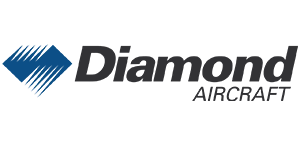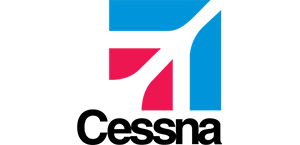Take your flight to the next level.
Commercial Pilot
After becoming a Private Pilot, perhaps you are ready to join the ranks of professional aviators? In addition to FAA-required subject areas, our Commercial Pilot course prepares you for real-world commercial flying.

OUR COURSES
Earn your Commercial Pilot Certificate
If you want to make money doing what you love, then a commercial pilot certificate is the ticket. It entitles you to be compensated for flying. Often referred to as a glorified private pilot, this license is easier than you think to get. Consider that you already know most of the basics, this license focuses on improving your decision making while improving on your precision, for example during the private pilot exam the tolerances for altitude and heading were 100ft & 10 deg of altitude and heading, during the commercial exam its 50 ft & 5 deg respectively, something perhaps you can already do.
LEVEL UP...
Why going for your commercial makes sense!
While you probably have not been dreaming of becoming a ferry pilot or pulling a banner along a crowded beachfront, perhaps taking skydivers up to altitude to jump from a perfectly good airplane was not high on your list, these are just some of the gateway jobs available to commercial pilots. Holding a commercial license is also required if you want to become a CFI and teach, and or go onto the airlines with an ATP certificate, all require your commercial ticket. Even for pilots that have no interest in becoming a professional aviator, simply getting your commercial license often means you’ll save money on reduced insurance rates, and become a safer pilot in the meantime, all of which make sense.
Opportunities
As a commercial-rated pilot, you are now able to be compensated for your services. Many pilots who get their commercial certificate become flight instructors, fly skydive jump plans, ferry aircraft from destinations, fly corporate jets, or head for the airlines.
Professionalism
A pilot truly looks professional when they have gone through the process of earning a commercial pilot certificate, demonstrating a serious, and safe outlook towards flying.
Skill Set
With the acquired skill sets from earning the private pilot and instrument rating, a commercial-rated pilot is held to even higher standards while flying. It is expected of them to fly with precision, safety, and ease. Ultimately, making for an enjoyable flight for the pilot and paying customers.
Insurance Rates
If the pilot ever wants to buy an aircraft of their own, they will save money on insurance due to being commercial and instrument-rated, and showing they are of less risk. A commercial & instrument-rated pilot is a safe pilot.
FSP
Mobile Scheduling
Mobile scheduling accessible on the go with our FREE native iPhone app enables you to book new flights, manage upcoming appointments, and view aircraft availability right from the convenience of your phone.

FROM THE FLIGHT DESK
How To Get Your License
Take a Lesson
Schedule a flight with an instructor, get your questions answered in a person by someone that has been exactly where you are, get in the air and go through the maneuvers, see what a commercial license is all about.
Set Goals & Make a Plan
Plot a path that will get you where you want to be and when. Flight training is tailored to each individual lifestyle, needs, and goals. How often you fly, when you fly, are critical achieving success.
Begin Training
Meet at scheduled times with your instructor to complete lessons in the air and on the ground specifically geared toward achieving your goals.
Pass the Aeronautical Knowledge Test
Like the private pilot and instrument written test that came before, you'll be tested on 60 multiple-choice questions, each with 4 possible answers, all from a blank of questions you are already familiar with. Again, don't worry you get plenty of time, 2 hours to be exact, and you'll need to gt a 70% or better.
It Takes Time
Perhaps the biggest barrier between you and your commercial certificate is your logbook. The FAA requires 250 hours of flight time, meanwhile, most private pilots, even those with instrument ratings have something in the low 100's, leaving anywhere between 100 and 150 hours to qualify for the commercial certificate. We can help, first, consider applying up to 50 hours of simulator time, it is much less expensive and allows you to train in conditions that would be difficult or unsafe to replace in the real world. Second, allow us to find you a partner to fly with, if you both follow the requirements you can dual log the time saving money and having a great time in the process.
Pass the Test
All your commitment and determination have paid off, your instructor endorses you for the practical exam. Demonstrate your ability successfully, and earn your Commercial License.
Celebrate & Keep Going
You are now a commercial pilot, entrusted with a higher level of responsibility & authority. You've demonstrated the skills and judgment that enable to you be amongst the good company of professional aviators.
Set Goals & Make a Plan
Plot a path that will get you where you want to be and when. Flight training is tailored to each individual lifestyle, needs, and goals. How often you fly, when you fly, are critical achieving success.
Pass the Aeronautical Knowledge Test
Like the private pilot and instrument written test that came before, you'll be tested on 60 multiple-choice questions, each with 4 possible answers, all from a blank of questions you are already familiar with. Again, don't worry you get plenty of time, 2 hours to be exact, and you'll need to get a 70% or better.
Pass the Test
All your commitment and determination have paid off, your instructor endorses you for the practical exam. Demonstrate your ability successfully, and earn your Commercial License.
FROM THE FLIGHT DESK
What are the requirements to be a Private Pilot?
FAA REQUIREMENTS
ELIGIBILITY REQUIREMENTS
- Be at least 18 years of age
- Be able to read, speak, write, and understand the English language.
- Hold a U.S. student pilot certificate & FAA approved medical
- Receive a logbook endorsement from an authorized instructor who conducted the training in areas listed in §61.105(b); and certified that the person is prepared for the required knowledge test
- Pass the knowledge test
- Receive flight training and a logbook endorsement from an authorized instructor who conducted the training in the areas of operation listed in §61.107(b) of this part that apply to the aircraft rating sought; and certified that the person is prepared for the required practical test
- Pass the practical test
AERONAUTICAL EXPERIENCE
MINIMUM EXPERIENCE
- 250 hours of PIC flight time
- 100 hours in a powered aircraft, 100 hours of PIC flight time
- 20 hours of commercial pilot training on the areas of operation listed in §61.127(b)(1)
- 10 hours of instrument flight training using a view limiting device.
- 10 hours of flight training in a complex aircraft, or technically advance aircraft (TAA)
- One day time 2-hour cross country flight in excess of 100 nautical miles from the departure airport.
- One nighttime 2-hours cross country flight in excess of 100 nautical miles from the departure airport.
- 3 hours of instrument training within 2 calendar months of the practical test with an authorized instructor
- 10 hours of solo flight time
- 5 hours in a night VFR with 10 take-offs and 10 landings at a controlled airport.
- One cross country flight no less than 300 nautical miles, total distance, with stops at a minimum of 3 airport, and a straight-line distance of 250 nautical miles.
HAVE A QUESTION?
We would love to hear from you




